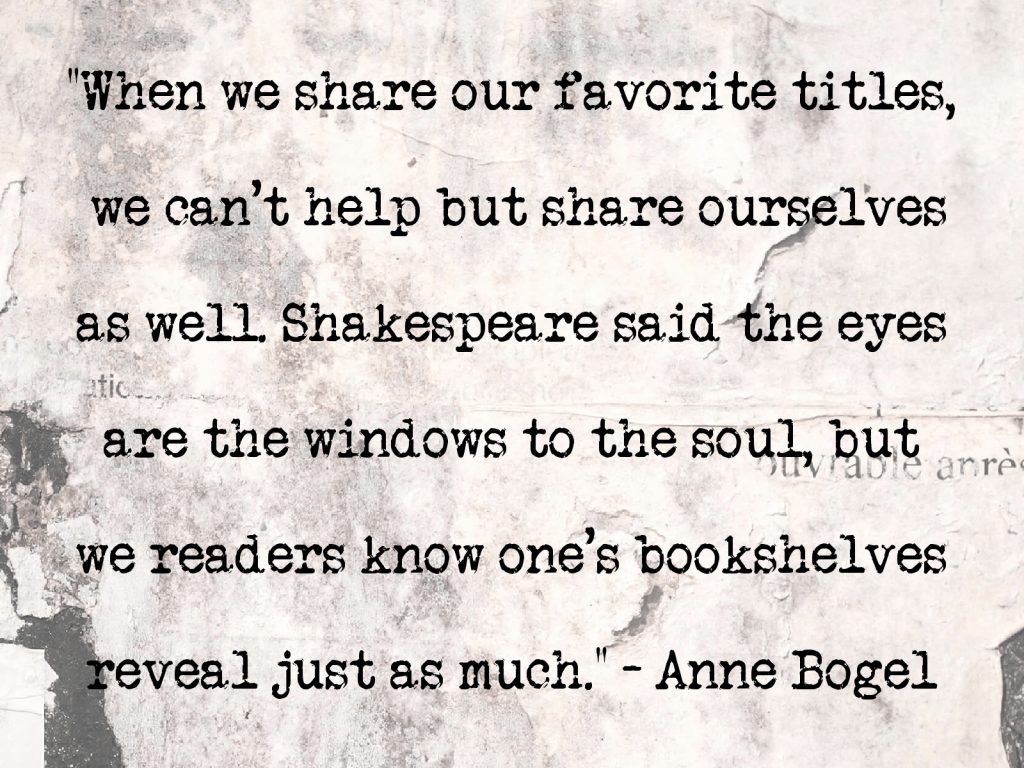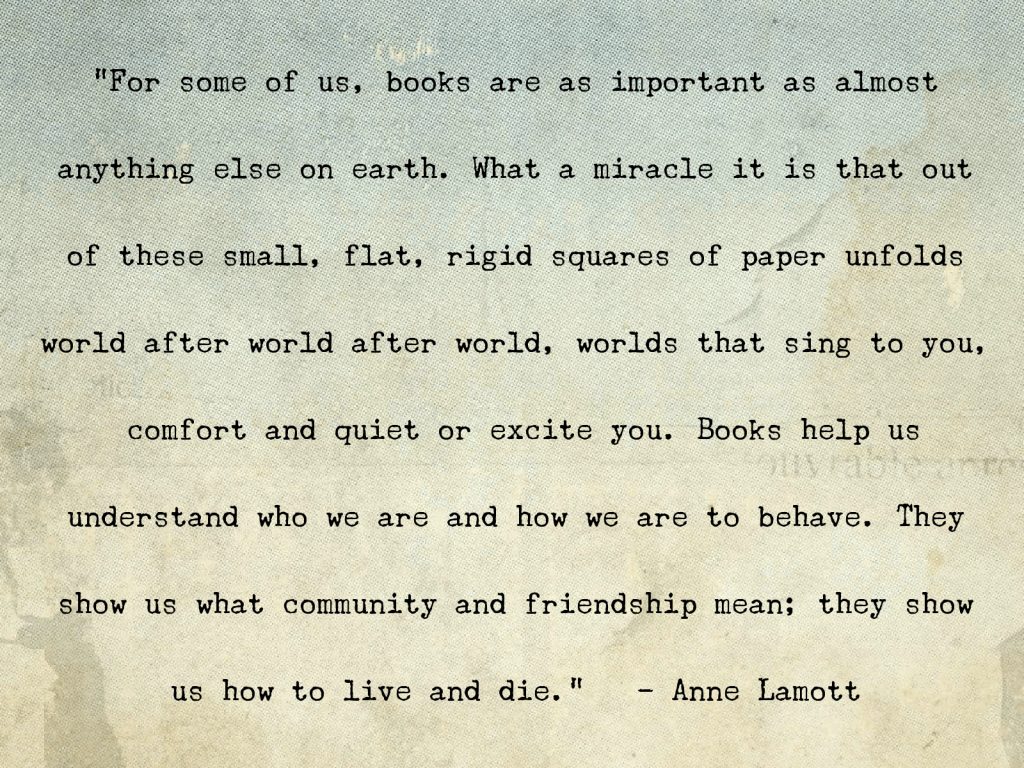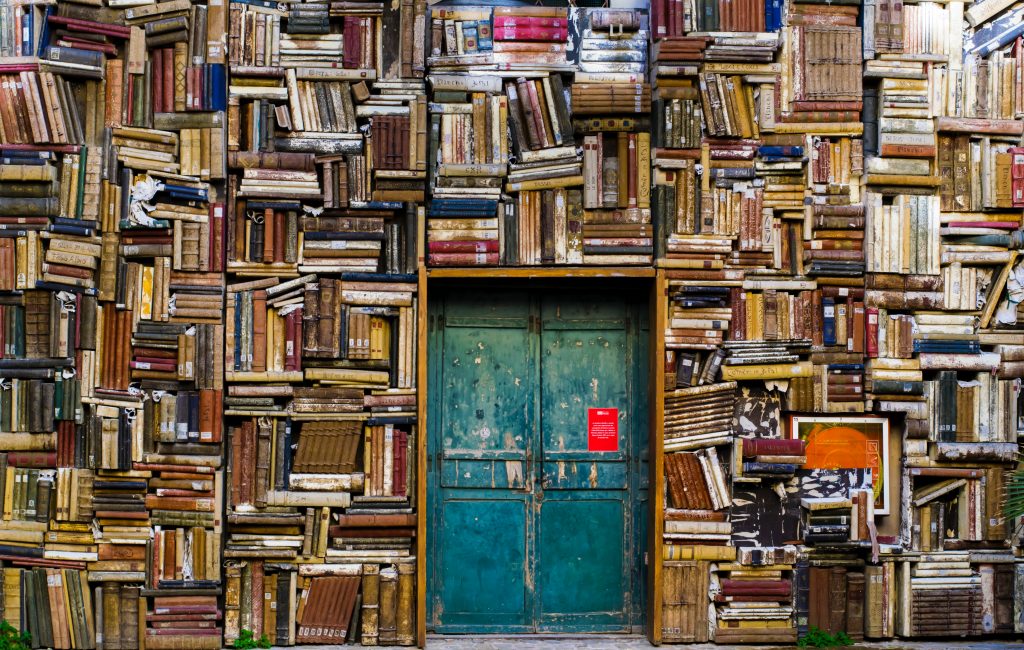In a recent episode of one of my favorite bookish podcasts, cohosts Meredith and Kaytee discussed the tropes they love seeing in books. The episode had the intended effect of inspiring me to think about tropes that I love in my books . . . and not just tropes, but also formats, themes, and elements I enjoy coming across in my reading (and also those that I’d rather avoid).
I touched on quite a few of these in my roundup of 100 things about me as a reader, but can there really be such thing as too much analysis of one’s reading life? Knowing what I love (and what I don’t) in a book helps me identify which books I will choose to read and which I will skip. So today, I’m sharing some of my likes and dislikes of books.
Just because a theme or structure or trope I love shows up in a book doesn’t guarantee that the book will be a hit with me, nor does a dislike necessarily turn me against a book as a whole. But generally speaking, a “loved” trope or element predisposes me to think more favorably towards a book, whereas a “disliked” one can sour a book I might otherwise have enjoyed.

BOOKISH LOVES
Listed in no particular order.
+ Past mysteries with a connection to the present.
+ Stories of redemption: reconciled relationships, tragedies that lead to positive outcomes, meaning found within brokenness and pain, etc.
+ “Older” characters, especially quirky ones.
+ Characters who are late bloomers. (Making for a coming-of-age story about an adult.)
+ Dry humor.
+ Short chapters.
+ Stories told from multiple viewpoints.
+ Huge paradigm shifts (plot twists) that come at the end of a book.
+ Unique plot structure (mixing in interviews or letters or lists with prose).
+ Epistolary novels.
+ Easter eggs embedded in the text.
+ Village setting (especially in a cozy mystery).
+ Books set in places where I have lived or visited.
+ Bookshop or library setting.
+ Books within books, or books about the publishing or bookish world.
+ Plenty of highlight-able passages. (Beautiful language, noteworthy quotes, poignant observations, etc.)
+ Parallel universes or timelines; opportunities to see a story for how it could have been vs how it turns out.
+ Families who love each other and treat each other well.
+ Historic houses that become a character in the story.

+ Successful, happy, thriving marriages.
+ Healthy sibling relationships.
+ Generational sagas.
+ Locked room mysteries.
+ Unexpected love matches.
+ Tender moments between parents and children.
+ Treehouses, attics, castles, secret rooms, passageways—any sort of unexpected or hidden setting with an element of magic or mystery.
+ Books/authors that don’t take themselves too seriously.
+ Expansive vocabulary.
+ Likable characters, or characters that you love to hate.
+ Nuanced characters whose behavior is surprising but believable and realistic.
+ Characters who overcome low expectations or hardships.
+ Unique premises, or surprising twists on familiar stories (such as fairytale retellings or well-done fan fiction).
+ Books that share a powerful lesson without moralizing.
+ Slightly ambiguous endings that point the reader in the right direction but don’t spell out the outcome.
+ Books that offer a window into a culture, world, or setting that is new to me.
+ Stories that teach AND entertain.

BOOKISH LOATHES
+ Infidelity (when being portrayed as acceptable).
+ Glamorization of bad behavior (murder, cheating, promiscuity, etc.).
+ Gratuitous sex, swearing, or graphic violence (ESPECIALLY in YA books).
+ Extreme emotional or physical abuse, particularly of children.
+ Sudden death of a child.
+ Stories that hinge on a character unwilling to share information or parts of their past with a loved one (especially engaged couples who do not disclose information about their lives prior to meeting).
+ Characters who act completely nonsensically (in ways no actual person would act).
+ Good girl/boy gone bad trope.
+ Teenage angst.
+ Books with a lot of violence or gore.
+ Victim mentality (especially in memoirs) when portrayed as laudable mindset or behavior.
+ Flat characters.
+ Disordered eating or too much page time spent dedicated to unhealthy dieting or body size.

+ Predictable plots (especially in romance).
+ Improper punctuation (especially lack of quotation marks), sentence structure, or grammar.
+ Books over 500 pages.
+ Books written in verse.
+ Characters who do not act their age (adults acting too immature to be believable, or kids and teens talking or acting too adult-like).
+ Characters with bizarre names, or multiple characters with names that are very similar.
+ Books that “talk down” to the reader.
+ Endings that are too ambiguous to be satisfying.
+ Unhappy or depressing endings with no glimmer of hope.
+ Epic fantasies that are too over-the-top to be accessible.
+ Vast amounts of page time being dedicated to world-building.
+ Anachronistic characters, dialogue, or themes, especially when stories from the past are coopted to make a statement about the present or when present standards (political, cultural, etc.) are unfairly applied to the past.
+ Series books that don’t recap earlier books or that don’t offer some story resolution (ending on too much of a cliffhanger).
+ “Tragedy porn” or emotional manipulation.

I consider myself a fairly open-minded reader, so I surprised myself by how many preferences I was able to list. How about you? What are some themes, structures, elements, or tropes you like seeing in the books you pick up? Which would you rather avoid?
It’s fun to think how one person’s loathe just might be another’s love, and vice versa—which is why each book has its own audience, and why my enthusiasm for a book doesn’t mean it’s the right fit for you. How fortunate we are to live in a world with an abundance of books, and something for every reader!
Oooh, good question; you covered nearly everything in one category or the other, but I’ll give you the gist of mine, so much like yours! Good: Good writing that stands on it’s own, apart from the story, Books that teach me something, Cool (and original) premise, satisfying ending, epistolary novels, stories about late bloomers, older adults and quirky (wise) older characters, they are so much fun! I like wit and cleverness and humor, I like happy marriages and good families, settings in my favorite country (France) or places i have actually lived, as well as highlightable passages I can share. For Bad: Just like you, Infidelity (when portrayed as OK, exactly!), glamourizing bad behavior, or for teens, acting like “all kids do it, it’s inevitable”, gratuitous sex and Especially Swearing, I really don’t want to see more than a damn or a hell in a book. Frustrating novels or storylines, where you are yelling at the characters, teen angst (cringe!), books in verse (you are the first person I’ve heard say this!) or books that are TOO poetic or dreamlike. I just wanna wake up outta that dream! They make me feel underwater… (I’m looking at you, Alice Hoffman) Thank you for this post and a chance to share!
Oh, yes, books set in places I have visited or lived in are always special, and I love books set in my own favorite country of Italy! I’m so relieved to know I’m not the only one who doesn’t care for books written in verse; I do like poetry but those aren’t for me, though we seem to be in the minority with this opinion.
Enjoyable post Kendra! We’re close to being book Twins! Exceptions are 1) I don’t enjoy parallel universe and 2) I love Free Verse and I’m happy to supply a list of favs! 😂😂😂
We do have such similar tastes! I always know I can trust your reviews. 🙂
Likewise! 🙌